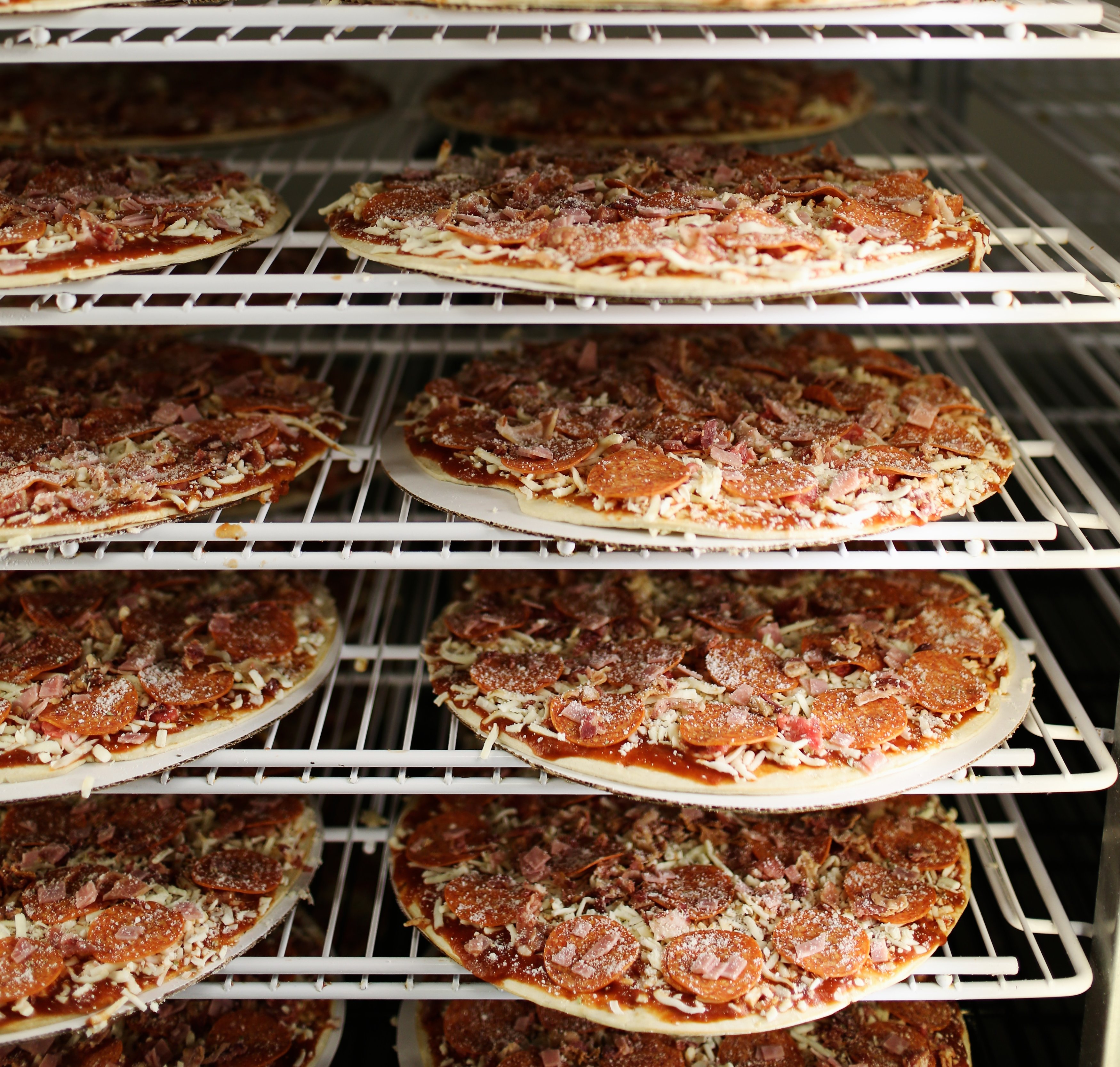What’s in a Frozen Pizza? Understanding Food Additives

Americans are as health-conscious as ever. More and more people are shying away from processed foods in favor of wholesome, locally-sourced food. But it’s hard to deny the convenience of picking up a frozen pizza on your way home from work (or keeping one stored in your freezer) and popping it in the oven for a quick meal. So what’s a busy, health-conscious person—who needs dinner ready in a pinch but still wants to make good food choices— to do? After all, frozen pizza is NOT a healthy option…right? Because of all the food additives? While this may be the case with the average frozen pizza, there are still some facts that need to be shared about food additives in the average frozen pizza.
The Truth About Food Additives
We’re sure you’ve read the nutrition labels of your average frozen pizza and been confused as to what some of those ingredients are. If you take even the quickest of glances, you may recognize some ingredients: yeast, tomato paste, soybean oil, cultured pasteurized milk, etc. Others need a little more explanation.
Enriched Flour. Most frozen pizza doughs are composed of:
- wheat flour
- niacin (Vitamin B3)
- reduced iron (a synthetic antioxidant used in both cosmetics and food)
- thiamine mononitrate (Vitamin B1)
- riboflavin (Vitamin B2)
- folic acid (Vitamin B12)
- Ascorbic acid (Vitamin C)
Pepperoni. Your average frozen pepperoni pizza is a mixture of pork, chicken and beef. That meat is then cured and preserved with a combination of spices and:
- dextrose (a sweetener derived from starches)
- lactic acid (a curing agent that controls acidity)
- sodium nitrite (a salt used to cure meats and preserve color)
- sodium ascorbate (a combo of sodium and citric acid)
- BHA/BHT (antioxidant preservatives)
- Citric acid (to protect flavor)
Sodium nitrites, BHAs and BHTs are particularly worrisome for some consumers who point to links between these preservatives and cancer. However, the FDA says that you’d have to consume incredibly high doses of them in order to be in any real danger. The quantities used in cured meats for frozen pizza are minimal.
Sugar. The average pizza uses 5g of sugar per serving. In the case of DiGiorno pizza, where the recommended serving size is 1/6 pizza, that’s 30g of sugar in an entire pizza. That’s the equivalent of a can of soda. In your pizza. Why? Because it masks the subpar quality of the average frozen pizza, and gives it a long shelf life, as well.
Why Use Food Additives At All?
Most of these chemicals and vitamins occur naturally in certain foods and are essential to our overall health. But in order to keep up with the rate of food production in this country, food manufacturers use these additives to enhance color, add in nutrients, and keep food from spoiling quickly. Ascorbic acid in a frozen pizza, for example, is a common dough conditioner used to make dough stretchier so it won’t tear (though we don’t use it!). Niacin, thiamine mononitrate, and folic acid are all important vitamins for your body, though scientists assert that it’s ideal not to overdo them. The most common additives you encounter have been approved for consumption by the FDA—though research has proven that some of them can cause food allergens and other issues. So are food additives necessary? In some instances, yes. But we don’t use them if we can help it. Here’s why.
How is Dogtown Frozen Pizza Different?
We believe that food doesn’t need additives to have authentic, delicious taste. The freshness, flavor, and locally-sourced ingredients you expect from made-by-hand pizza are combined with the ease and convenience of frozen pizza. Our Dogtown Naturals line, especially, gives you the all-natural, clean pizza you deserve. We get our veggies and meat from local farmers who offer us high-quality products (no machine separation here!). We blast freeze the pizza to lock in the freshness and preserve flavor. No unnecessary sugar or other preservatives needed. The only two “non-natural” pizza ingredients in our entire product line are our Pepperoni and Bacon, and that’s only because it’s impossible to have cured meats without nitrites! Everything else? All natural. We’ve been changing the frozen pizza game for nearly a decade now, and we don’t have any plans of stopping. So the next time you’re on your way home from work and need a quick bite that you can feel good about feeding your family, you know who to look for.




